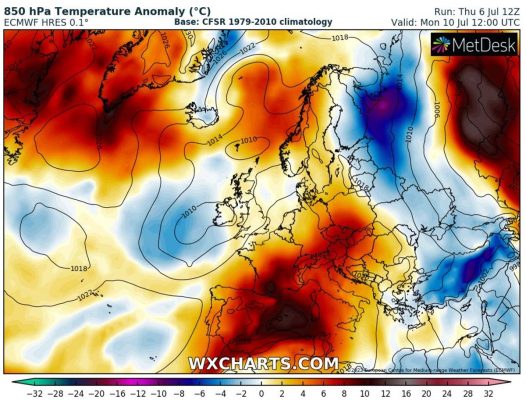Southern Europe Heatwave: A Climate Change Wake-Up Call?
Southern Europe is currently in the grip of an intense heatwave, with countries like Italy, Spain, and Greece experiencing high temperatures for several days. This situation, referred to as the Southern Europe Heatwave, shows no signs of abating and is expected to intensify next week.
The Italian health ministry has issued a red alert for 16 cities, including Rome, Bologna, and Florence, over the weekend. This Southern Europe Heatwave is a stark reminder of the escalating impacts of climate change.

The Europe Heatwave has had a significant impact on the region. In Italy, temperatures could potentially reach 48C (118.4F) in Sardinia, according to local media. Meanwhile, Greece has seen temperatures of 40C (104F) or more in recent days.
The heatwave has also led to a forest fire in Spain’s Canary Islands, forcing the evacuation of at least 2,000 people and destroying 4,500 hectares (11,000 acres) of land. The Europe Heatwave is not just a weather event; it’s a crisis that demands immediate attention.
You may also like: Cerberus Heatwave Southern Europe: Record-Breaking Temperatures on the Horizon
Heatwave and Climate Change
The Southern Europe Heatwave is a stark reminder of the impacts of climate change. Heatwaves are becoming more frequent, more intense, and are lasting longer due to global warming.
Italian meteorologist and climate expert Giulio Betti notes that heatwaves are among the most tangible and clearly observable signs of climate change.
He adds that European summers have gotten much hotter in recent years, and summers without intense and prolonged heatwaves have become a rarity. The Europe Heatwave is a clear manifestation of this trend.

In response to the Southern Europe Heatwave, governments have issued warnings and taken measures to protect their citizens.
Italy’s government has advised people in areas covered by red alerts to avoid direct sunlight between 11:00 and 18:00. And to take particular care of the older people or vulnerable.
In Greece, the Acropolis in Athens was closed during the hottest hours of Friday and Saturday to protect visitors.
These measures, while necessary, are reactive responses to the Southern Europe Heatwave, highlighting the need for more proactive climate action.
The Future of the Southern Europe Heatwave
As the Southern Europe Heatwave continues, experts warn that such extreme weather events will become more common due to climate change. Last month was the hottest June on record, according to the EU’s climate monitoring service Copernicus.
This trend is expected to continue, with more severe extreme events and fewer cold extreme events. The Europe Heatwave is not just a weather event. It’s a wake-up call for the world to take climate change seriously.

The Europe Heatwave is a significant event that highlights the impacts of climate change. As the region continues to grapple with high temperatures, the need for effective climate action becomes increasingly apparent.





